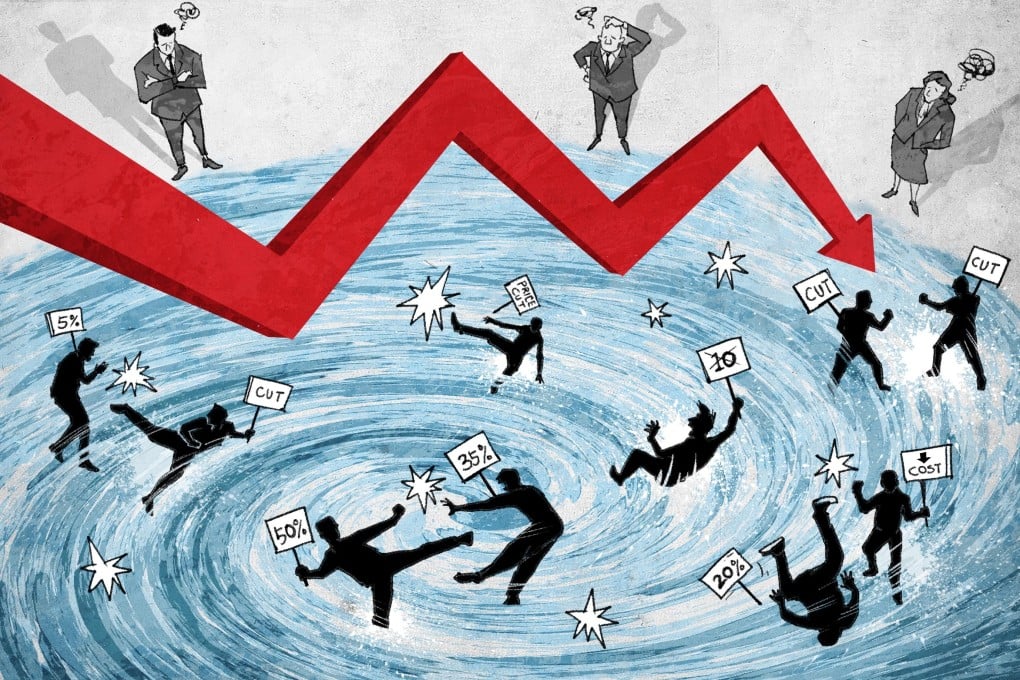How should Beijing intervene to save Chinese firms from vicious competition?
A storm is gathering strength in China’s overheated industries, and its name is neijuan, as government intervention squares up against the law of the jungle

Having surrendered their mobile phones, more than 30 executives at the helms of China’s biggest solar manufacturers entered a hotel conference room in a small city in Sichuan province.
There, during a heavily guarded closed-door meeting earlier this month, they signed on to a self-discipline programme aimed at curbing vicious competition that has had a debilitating impact on their industry since last year.
“If you are not self-disciplined today – you keep quoting low prices, and you keep expanding the repetitive production capacity, trying to outlast others – I tell you, you will definitely not be able to outlast your myriad peers. Don’t be naive,” said Qian Jing, vice-president of Jinko Solar – a leading solar-module manufacturer – at an annual solar industry conference one day before the closed-door meeting.
Yet, for all the talk of self-discipline, doubts surrounding the real resolve have yet to dissipate. Among industrial players, it is an open secret that once many of them leave a conference stage, or recollect their phones after a closed-door meeting, it’s the law of the jungle: eat or be eaten. In this case, expand production capacity or see your market position gobbled up.
And with the billowing trend gathering strength, neijuan is wreaking havoc on the broader Chinese economy already in a battered state and in the midst of transforming from its reliance on old growth engines, including real estate, to new ones that are fuelled by hi-tech sectors and advanced manufacturing.
This shrinkage is not over yet. We see more challenges next year
